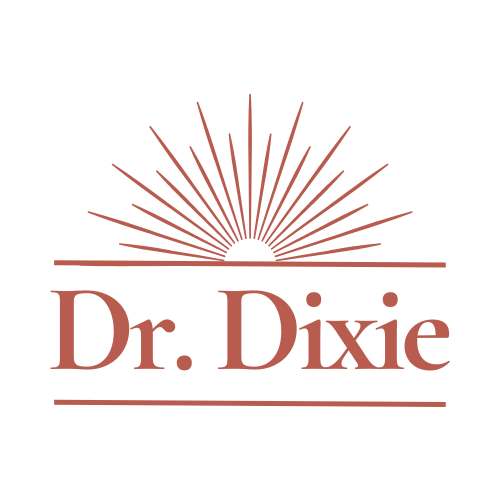Pregnancy Wellness Essential: DHA
PREGNANCY WELLNESS ESSENTIAL: UNLOCKING THE BENEFITS OF DHA-RICH FISH OIL
INTRODUCTION:
Different fish species, such as mackerel, capelin, anchovies, and salmon, are used to extract fish oil based on their levels of omega-3. Different oil-rich organs of the fish, such as the liver, head, adipose tissues, and meat, are mechanically pressed by weight to extract oil, which is further purified to remove impurities and contaminants (Ivanovs et al., 2017). The extracted oil is further processed to purify and preserve for a long time. Purified fish oil is a powerful nutritional supplement with many health benefits (Patrick et al., 2018). Fish oil contains two essential fatty acids: EPA-eicosapentaenoic acid and DHA-docosahexaenoic acid. DHA is usually more abundant and commonly studied for the pregnancy wellness of fetuses and mothers.
FISH OIL INSTEAD OF EATING FISH!
The modern concept of a healthy diet has various challenges, but consuming fish oil supplements instead of just eating fish can be an effective choice for a healthy lifestyle (Fard et al., 2018). Fish and other aquatic animals are a natural source of omega-3 fatty acids such as EPA and DHA, but the exponential increase in environmental pollution seriously threatens our marine ecosystems. Oceans are polluted now because of the regular release of toxins such as lead, mercury, polychlorinated biphenyls (PCBs), and other heavy metals from industrial units (Langston, 2018). That's why extracting refined oil with its vital nutrients and benefits is more advantageous than just eating fish, as it avoids risks of toxins and contaminants. Fish oil supplements improve human health and help preserve our marine biodiversity.
BENEFITS OF FISH OIL:
Fish oil has numerous human health benefits. It is enriched with omega-3, which is vital in different biological functions such as cardiovascular regulation, immune system response, and cognitive functioning (Chen et al., 2022). Fish oil lowers the levels of triglycerides in the blood and helps to reduce the risk of heart disease by promoting better control of blood pressure (Gould et al., 2019). DHA-enriched fish oil helps in the brain's proper growth and cognitive function. Arthritis and joint pains are also relieved by using fish oil, which has anti-inflammatory properties.
Fish oil, particularly rich in omega-3 fatty acids such as DHA (docosahexaenoic acid), benefits both mother and fetus during pregnancy (Hansen et al., 2017).
Ø Development of Fetus:
· DHA is essential for the development of the fetal brain. It travels from the placental barrier and delivers vital brain-growth nutrients (Devarshi et al., 2019). Different research studies have shown that DHA supplements are essential to the fetus's cognitive development and intelligence quotient (IQ)(Devarshi et al., 2019).
Ø Protecting Maternal Health:
· Pregnancy offers different challenges, such as stress and other physical and emotional problems. DHA in fish oil helps to relieve stress by promoting healthy immunity in the body.
· Its anti-inflammatory properties help with pregnancy-related joint and muscle pain and fluctuating mood swings in mothers (Senftleber et al., 2017).
· It also helps to reduce the chances of postpartum depression in new moms.
Ø Enhancing Immune Defenses:
· Immune system strength is significant in today's pandemic-disturbed society. DHA-enriched fish oil has immune-modulatory properties to strengthen the body's defense mechanisms of both the mother and the fetus to prevent diseases and boost overall health (Mendivil, 2021).
Ø Improving Cardiovascular Health:
· Fish oil is rich in omega-3, and DHA has beneficial cardio-protective properties. It is an effective supplement that lowers the triglyceride levels and inflammation related to the heart, ultimately decreasing the chances of chronic cardiovascular problems (Phang et al., 2018).
Ø Enhancing Cognitive Function:
· DHA is also essential to develop the brain of both mother and fetus, which improves cognitive function and prevents its decline (Lehner et al., 2021)
· Fish oil is a powerful cognitive function booster, which helps achieve the brain's maximum capacity while increasing its sharpness and mental well-being.
POST-NATAL MENTAL HEALTH:
Post-natal mental health is the critical aspect of the maternal experience, which often overshadows the joyous arrival of a newborn. For many women, the postpartum period can be filled with emotional turmoil, which may start from "baby blues" to more serious conditions like postpartum depression (PPD) (Mayers et al., 2020).
Researchers and experts around the globe have reported the importance and significant impact of DHA-enriched fish oil on post-natal (immediate period after giving birth) mental health (Vaz et al., 2017) (Patrick, 2020). These studies reported the inter-relationship between the intake of omega-3 and the neuro-transmitting activity of the brain. Different longitudinal studies (Hamazaki et al., 2020) and research also mentioned the long-term benefits of taking DHA-rich fish oil throughout the postpartum period to contribute to the long-term mental health-related benefits. This collection of experiments and research highlights the importance of taking DHA-rich fish oil supplements during maternal healthcare to promote mental health benefits for both mothers and children (Harauma et al., 2023).
CONCLUSION:
In conclusion, the benefits and transforming properties of DHA-rich fish oils go beyond the range of our traditional nutritional strategies, introducing us to a reliable method for good health. Its benefits extend from developing the fetus in a mother's womb to enhancing the mother's cognitive functions. As we go through the modern complex lifestyle, we should follow scientific research to promote fish oil as a reliable product for our overall health and vitality. We can call it an essential portion of food for our bodies and comfort for the soul, as it helps to fight postpartum depression, leading to a healthier and brighter future.
As proof of the effectiveness of fish oil, I recall my experience with two pregnancies. I faced postpartum depression. I took DHA for comfort and relief. I acknowledge fish oil's transforming potential in protecting maternal and fetal health as a promising way to combat postpartum depression and stress, leading to a more exciting future. As we discuss the difficulties of modern life, let us follow the ocean's insight and enjoy the benefits of DHA-rich fish oil.
REFERENCES:
· Chen, J., Jayachandran, M., Bai, W., Chemistry, B. X.-F., & 2022, undefined. (n.d.). A critical review on the health benefits of fish consumption and its bioactive constituents.
· Devarshi, P., Grant, R., Ikonte, C., Nutrients, S. H. M.-, & 2019, undefined. (n.d.). Maternal omega-3 nutrition, placental transfer and fetal brain development in gestational diabetes and preeclampsia. Mdpi.Com
· Fard, S. G., Wang, F., Sinclair, A. J., Elliott, G., & Turchini, G. M. (2018). How does high DHA fish oil affect health? A systematic review of evidence.
· Hamazaki, K., Matsumura, K., Tsuchida, A., Kasamatsu, H., Tanaka, T., Ito, M., Inadera, H., Japan Environment, the, & Group, S. (n.d.). Dietary intake of fish and n-3 polyunsaturated fatty acids and risk of postpartum depression: a nationwide longitudinal study–the Japan Environment and Children's.
· Hansen, S., Strøm, M., Maslova, E., … R. D.-J. of A. and, & 2017, undefined. (n.d.). Fish oil supplementation during pregnancy and allergic respiratory disease in the adult offspring. Elsevier.
· Harauma, A., Yoshihara, H., Hoshi, Y., Nutrients, K. H.-, & 2023, undefined. (n.d.). Supplementation on Postpartum Mental Health and the Association between Prenatal Erythrocyte Omega-3 Fatty Acid Levels and Postpartum Mental Health. Mdpi.Com.
· Ivanovs, K., Procedia, D. B.-E., & 2017, undefined. (n.d.). Extraction of fish oil using green extraction methods: A short review. Elsevier.
· Langston, W. J. (2018). Toxic Effects of Metals and the Incidence of Metal Pollution in Marine Ecosystems. Heavy Metals in the Marine Environment
· Lehner, A., Staub, K., Aldakak, L., … P. E.-N., & 2021, undefined. (n.d.). Impact of omega-3 fatty acid DHA and EPA supplementation in pregnant or breast-feeding women on cognitive performance of children: systematic review and meta.
· Mayers, A., Hambidge, S., Bryant, O., & Arden-Close, E. (2020). Supporting women who develop poor post-natal mental health: What support do fathers receive to support their partner and their own mental health?
· Mendivil, C. O. (2021). Dietary Fish, Fish Nutrients, and Immune Function: A Review. Frontiers in Nutrition, 7.
· Phang, M., drugs, M. S.-M., & 2018, undefined. (n.d.). Marine Omega-3 fatty acids, complications of pregnancy and maternal risk factors for offspring cardio-metabolic disease.
· Rangel-Huerta, O., reviews, A. G.-N., & 2018, undefined. (2018). Effect of omega-3 fatty acids on cognition: an updated systematic review of randomized clinical trials.
· Senftleber, N., Nielsen, S., Andersen, J., Nutrients, H. B.-, & 2017, undefined. (n.d.). Marine oil supplements for arthritis pain: a systematic review and meta-analysis of randomized trials.
· Vaz, J. dos S., Farias, D. R., Adegboye, A. R. A., Nardi, A. E., & Kac, G. (2017). Omega-3 supplementation from pregnancy to postpartum to prevent depressive symptoms: A randomized placebo-controlled trial.
· R. Patrick, D. E. Griffin, and H. B. Kaplan, "Role of DHA in maternal and child mental health," Journal of Nutritional Neuroscience, vol. 21, no. 5, pp. 367-375, 2018.
· J. F. Gould, L. G. Smithers, and M. Makrides, "The effect of maternal omega-3 (n-3) LCPUFA supplementation during pregnancy on early childhood cognitive and visual development: A systematic review and meta-analysis of randomized controlled trials," American Journal of Clinical Nutrition, vol. 109, no. 1, pp. 107-118, 2019.
· E. D. Barker et al., "Prenatal maternal depression symptoms and nutrition, and child cognitive function," British Journal of Nutrition, vol. 119, no. 10, pp. 1133-1141, 2018.
· L. Lauritzen et al., "DHA effects in brain development and function," Nutrients, vol. 9, no. 9, p. 1216, 2017.
· Patrick, R. (2020). Omega-3 Fatty Acids and Neurogenesis in the Brain. Advances in Nutrition, 11(3), 473-484.

